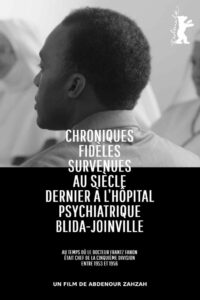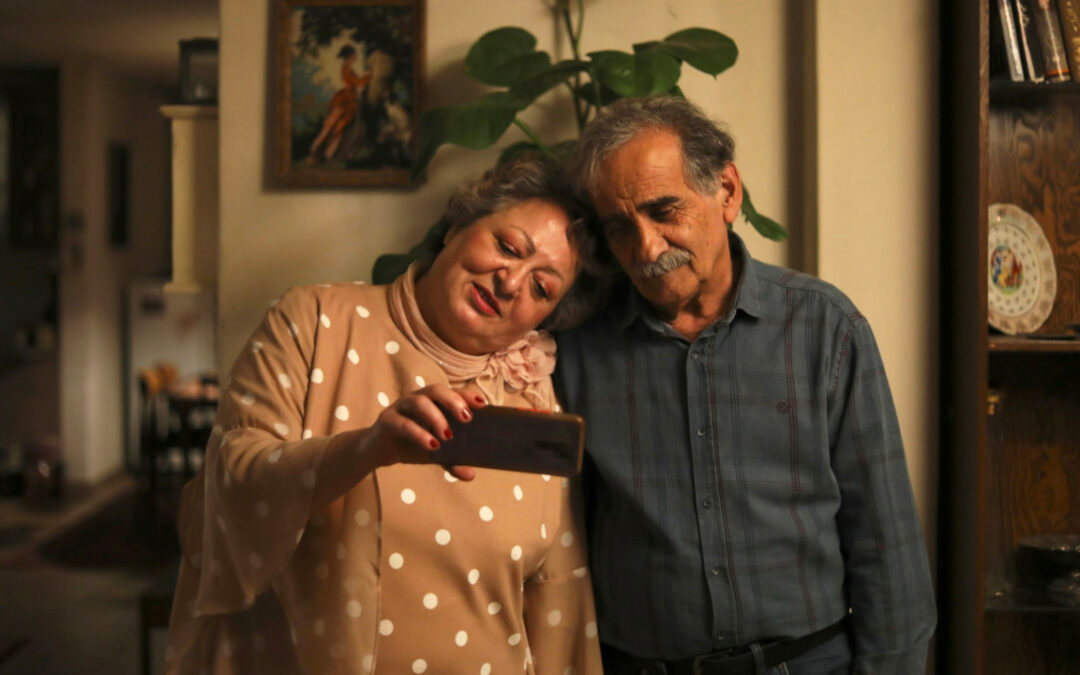The 74th Berlinale is over and we look forward to see the movies in the Italian theaters as well. The awarded ones will have a better chance of finding space, but an Iranian movie critically acclaimed, although snubbed by the jury, has already been acquired for Italian distribution: Keyke mahboobe man (My Favourite Cake), which nonetheless won both the Prizes of the Ecumenical jury and the FIPRESCI (international press) jury. The two filmmakers, Maryam Moghaddam and Behtash Sanaeeha, could not get the Prizes in person because they have had their passports confiscated by Iranian authorities: around there, many films have to be shot secretly if they want to show real life and not the censored and fake one the regime tries to impose. The main character is in her seventies and has no interest in politics: she is a widow and her daughter lives abroad; she is lonely and goes out so rarely that she feels lost in her own town. By chance she meets an equally lonely taxi driver her age, and because of the sympathy he inspires in her, she tries to get to know him better. In Iran, however, the mere fact that a septuagenarian but unmarried couple spend an evening together at home is unwelcome: the sweetness of this little hope of old age love has also the bitterness of having to do everything in secret. In its own small way, it’s truly a revolutionary film because it reveals the sincerity of everyday life that the regime would like not to be shown. It’s not even a story completely hidden within four walls, for the elderly woman is not at all indifferent to the injustices suffered by the younger women: although it seems out of time and space, this movie is totally immersed in the climate of fear and revolt of today’s Iran.
 Also part of the Berlinale program is the independent, non-competitive section Forum, which has served as an alternative to the official selection in order to showcase young directors and experimental films from all over the world since 1971. In the last days of the festival this is where we could see the film, directed by Abdenour Zahzah, with the longest title of this edition: Chroniques fidèles survenues au siècle dernier à l’hôpital psychiatrique Blida-Joinville, au temps où le Docteur Frantz Fanon était chef de la cinquième division entre 1953 et 1956. That alone is a nice summary, but first of all it’s better to remember who Frantz Fanon was. Born in Martinique in 1925, a member of the French Resistance dring the war, he later graduated in psychiatry and in the mid-1950s was the first black head physician to work in the Blida-Joinville psychiatric hospital in Algiers, still a French colony. Fanon introduced sociotherapy there: the aim was to treat patients in a dignified way and in particular to actively involve them in collective conversations and social activities, involving medical staff as well, at a time when electroshock and depersonalization of patients were still the norm in most of the world, Italy included. A peculiar characteristic of that institute was the clear separation of French patients from Arab patients; being in charge of an Arab division, Fanon committed himself to understanding their culture and ended up collaborating with the National Liberation Front, fully developing his anti-colonialist ideology in such background. Those intense years in Algeria are recounted a plain, straightforward, black-and-white, well-documented film, useful for a non-specialist audience to understand the function of psychiatric hospitals as centers of detention and suppression of dissent too. Although Fanon’s path is marked by personal historical/political issues, his contribution in clarifying the essence of the asylum as a place of deprivation of the patient’s dignity through the abuse of power (and a consequent absence of therapeutic will) has been recognized beyond French borders, influencing even Franco Basaglia: that’s why we hope to see this film in Italy soon.
Also part of the Berlinale program is the independent, non-competitive section Forum, which has served as an alternative to the official selection in order to showcase young directors and experimental films from all over the world since 1971. In the last days of the festival this is where we could see the film, directed by Abdenour Zahzah, with the longest title of this edition: Chroniques fidèles survenues au siècle dernier à l’hôpital psychiatrique Blida-Joinville, au temps où le Docteur Frantz Fanon était chef de la cinquième division entre 1953 et 1956. That alone is a nice summary, but first of all it’s better to remember who Frantz Fanon was. Born in Martinique in 1925, a member of the French Resistance dring the war, he later graduated in psychiatry and in the mid-1950s was the first black head physician to work in the Blida-Joinville psychiatric hospital in Algiers, still a French colony. Fanon introduced sociotherapy there: the aim was to treat patients in a dignified way and in particular to actively involve them in collective conversations and social activities, involving medical staff as well, at a time when electroshock and depersonalization of patients were still the norm in most of the world, Italy included. A peculiar characteristic of that institute was the clear separation of French patients from Arab patients; being in charge of an Arab division, Fanon committed himself to understanding their culture and ended up collaborating with the National Liberation Front, fully developing his anti-colonialist ideology in such background. Those intense years in Algeria are recounted a plain, straightforward, black-and-white, well-documented film, useful for a non-specialist audience to understand the function of psychiatric hospitals as centers of detention and suppression of dissent too. Although Fanon’s path is marked by personal historical/political issues, his contribution in clarifying the essence of the asylum as a place of deprivation of the patient’s dignity through the abuse of power (and a consequent absence of therapeutic will) has been recognized beyond French borders, influencing even Franco Basaglia: that’s why we hope to see this film in Italy soon.





